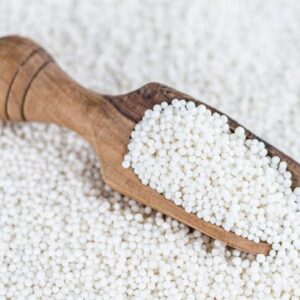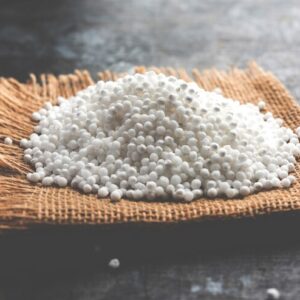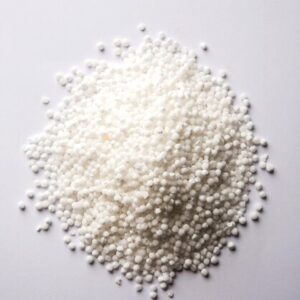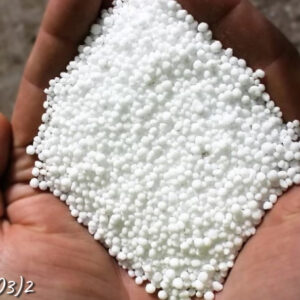Calcium Nitrate (CaNO3)
Calcium nitrate is mainly produced as a fertilizer, used for plant nutrition purposes, and for wastewater treatment. It is a source of both calcium and nitrogen, for plants. Nitrogen is a macro element, required by plants in large quantities. It is a building block of the chlorophyll and of amino acids.
Calcium is an important component of the cell walls and proper supply of calcium is essential to plant development. It improves fruit quality, shelf life, strengthens the cell wall and helps to protect the plant from stress and diseases. Calcium moves in plants only up from the roots, with the water flow, and is immobile once incorporated in plant tissue. Therefore, a constant supply is required.
Useful properties of calcium nitrate:
* increases the immunity of plants, resistance to temperature extremes, apical rot;
* stimulates the awakening of bulbs and seeds;
* accelerates photosynthesis, promoting the development of greenery and roots;
* Improves soil quality by absorbing metals and neutralizing acidity;
* Has a beneficial effect on the taste characteristics of the crop, prolongs the shelf life;
* Due to a calcium deficiency, plants absorb moisture and nutrients from the ground worse – when calcium nitrate is applied, the roots revive, and healthy vegetation is stimulated.
* provides full growth of the root part of the plant. Calcium nitrate is able to accelerate photosynthesis in the leaves, which leads to the strengthening of the plant walls. Calcium contained in nitrate ensures complete assimilation of
nitrogen;
* in soil fertilized with calcium nitrate, seeds germinate much faster, since enzymatic activity is activated;
* The roots grow strong and healthy, due to which they are practically not affected by bacteria and fungi.
* a solution of calcium nitrate increases the frost resistance of the plant (even at the lowest temperatures, crops do not freeze).
* Calcium nitrate solution is suitable for feeding most fruit trees.
* To get the predicted benefit, you should clarify what exactly calcium nitrate is used for. In most cases, it is planned to use it to increase the yield by 15%. If the recommended dosage is followed, nitrates do not accumulate in the fruit.







